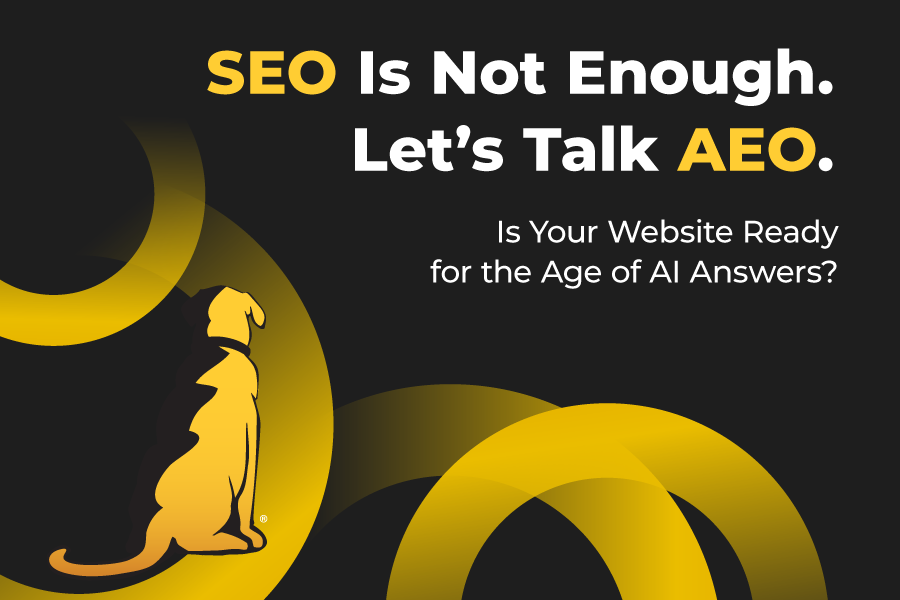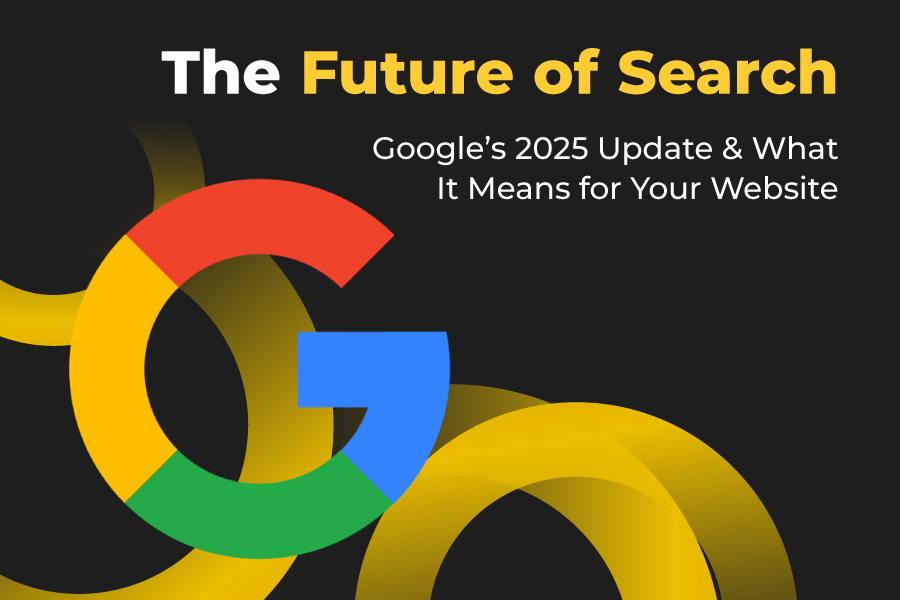Answer Engine Optimization vs SEO: How to Future-Proof Your Site
As search evolves, so must your marketing strategy. Traditional Search Engine Optimization (SEO) has long been a cornerstone of digital marketing, especially for businesses looking to generate leads and establish credibility online. But in the age of AI-driven search assistants like ChatGPT, Gemini, and Perplexity, there’s a new player in town: answer engine optimization (AEO).
If your website is still laser-focused on traditional Google rankings, you may be overlooking how your prospects are now getting answers. Here’s what AEO is, how it differs from SEO and five actionable ways to prepare your website for this AI-powered shift in behavior.
What is AEO vs. SEO?
SEO (Search Engine Optimization) is the process of optimizing your website and content to rank higher in traditional search engines like Google and Bing. This includes keyword usage, backlinks, site speed, mobile responsiveness, and more.
AEO (Answer Engine Optimization) is the process of structuring your content so that AI-powered answer engines—like ChatGPT, Claude, or Google’s Search Generative Experience (SGE)—can find, understand, and deliver it as a direct answer to a user’s query.
Instead of competing for clicks, AEO is about earning trust and visibility by being the source of the answer—not just a clickable link.
Why it matters:
A 2024 study by Gartner predicts that by 2026, 30% of searches will be conducted through AI-powered answer engines rather than traditional search interfaces. According to HubSpot, 81% of consumers prefer getting answers from AI assistants if the answers are accurate and fast.
Google’s Search Generative Experience (SGE) is currently rolling out to all users and prioritizes AI-generated answers over traditional listings.
ChatGPT’s web browsing plugin and competitors like Perplexity.ai and Claude are becoming trusted research tools in enterprise environments.
This shift matters even more in B2B, where complex questions and decision-making journeys rely heavily on trusted, concise information.
5 Ways to Make Your Website AEO-Ready
1. Focus on Clear, Structured Answers
AEO isn’t about fluff. It’s about clarity. Structure your content in a way that answers specific questions directly:
- Use headers like “What is [X]?” or “How does [X] work?”
- Place succinct answers in the first paragraph under that header.
- Use bullet points and numbered lists to enhance scannability.
Pro tip: Use FAQs and glossaries tailored to your industry—these are gold mines for answer engines.
2. Implement Schema Markup
Schema.org structured data helps AI and search engines understand what your content is about.
- Use FAQ, How-To, and Product schema on key pages.
- For B2B, also use Organization, Service, and Review schema types.
Pro tip: According to Google, pages with structured data are eligible for rich results, which increases visibility and trust.
3. Use Conversational Language in Content
Since AI assistants often answer queries in a natural, conversational tone, writing content that mirrors this makes it easier to surface in these results.
- Write like you’re answering a customer’s question in a chat or email.
- Use tools like AlsoAsked or AnswerThePublic to discover natural language queries.
Pro tip: Think: “How do I reduce supply chain costs?” not “supply chain cost optimization services.”
4. Own Your Niche Expertise
Answer engines favor trusted sources. Become one by publishing thought leadership content that aligns with long-tail, complex queries.
- Publish explainer articles, whitepapers, and stats-backed blogs.
- Keep a consistent voice and presence across platforms.
Stat: A Demand Gen Report found that 65% of B2B buyers say thought leadership significantly influenced their perception of a brand’s credibility.
5. Optimize for Entity Recognition
Answer engines index based on “entities,” not just keywords. Make sure your business, products, and services are recognized entities by:
- Getting listed in knowledge bases like Crunchbase, LinkedIn, and Wikipedia.
- Using consistent naming conventions across all web properties.
- Including your brand name and key service offerings naturally in content.
FYI: The more recognized your brand and terminology are, the more likely you’ll be referenced in answer engine responses.
AEO Is the Future of Visibility—Start Now
Answer engine optimization isn’t replacing SEO, it’s enhancing it. Smart brands will optimize for both.
Whether your business sells SaaS, industrial equipment, or professional services, aligning your content with how people ask and consume answers is your ticket to building authority in the new search era.
Ready to future-proof your site for the next generation of search? Let’s talk about making your content AEO-ready.





